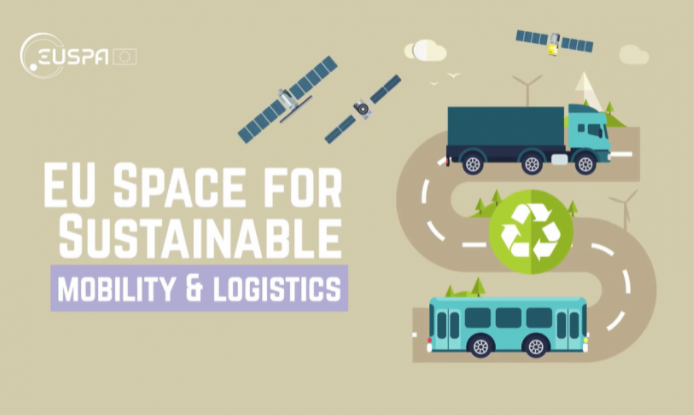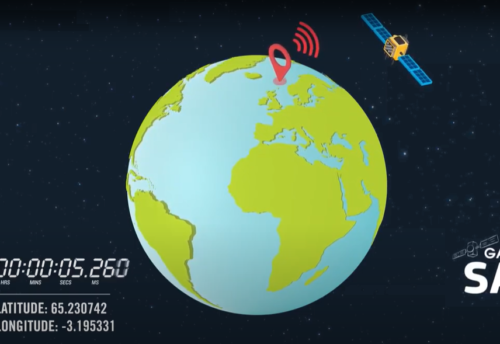
- 08/11/2021
EU Space 4 green and digital transition
Galileo and EGNOS contribute to the rollout of sustainable transport modes by reducing aviation emissions, and optimizing routes on land and at sea.
Transport is one of the main sources of air pollution, which is known to have direct effect on mortality as well as respiratory and cardiovascular diseases. According to the European Environment Agency, greenhouse gas emissions deriving from transportation increased in 2018 and 2019 EU-wide. Cutting down by 55% greenhouse gas emissions (GHG) by 2030, as defined in the latest EC legislation package, will require robust action particularly in road transport, the highest contributor to transport emissions, as well as aviation and shipping. European satellite technology is a helping hand on the road to climate neutrality.
The way we are driving is changing. Many of today’s cars and trucks are already equipped with advanced driver assistance systems, including lane departure warning systems, automated breaking and adaptive cruise control. These systems are using Galileo, the European Global Navigation Satellite System to provide, reliable, robust and accurate positioning. Increasingly, transport services are operating in a cooperative environment with communication between drivers and road infrastructure. This cooperative intelligent transport systems (ITS) will allow road users and traffic managers to share and use information. This is set to improve safety and reduce congestion by helping drivers to make the right decision based on real-time traffic situation. The use of satellite navigation systems such as Galileo in road vehicles can reduce journey times by more than 10%, and thus contribute to curbing emissions of harmful and polluting substances.
In the EU in 2017, direct emissions from aviation accounted for 3.8% of total CO2 emissions. The aviation sector creates 13.9% of the emissions from transport, making it the second biggest source of transport greenhouse gas emissions after road transport. By enabling aircrafts to land safely under challenging weather conditions such as fog EGNOS helps reduce the frequency of aborted landings (go-arounds) and therefore emissions. An estimated 80.000 flight delays and 20.000 diversions will be avoided EU-wide thanks to EGNOS by 2025.
Maritime industry and especially large vessels such as bulk carriers or tankers also benefit from the EU Space Programme. EGNOS and Galileo can provide energy efficient, accurate manoeuvring especially in congested ports or inland waterways. At the same time, information on currents coming from Copernicus can optimize a vessel´s routing and thus further decrease emissions while saving costs. This results in fewer emissions in line with “Fit for 55” targets.
For further info visit EUSPA.



